 W
WThe Articles of Confederation and Perpetual Union was an agreement among the 13 original states of the United States of America that served as its first constitution. It was approved, after much debate, by the Second Continental Congress on November 15, 1777, and sent to the states for ratification. The Articles of Confederation came into force on March 1, 1781, after being ratified by all 13 states. A guiding principle of the Articles was to preserve the independence and sovereignty of the states. The weak central government established by the Articles received only those powers which the former colonies had recognized as belonging to king and parliament.
 W
WSamuel Adams was an American statesman, political philosopher, and one of the Founding Fathers of the United States. He was a politician in colonial Massachusetts, a leader of the movement that became the American Revolution, and one of the architects of the principles of American republicanism that shaped the political culture of the United States. He was a second cousin to his fellow Founding Father, President John Adams.
 W
WJosiah Bartlett was an American physician and statesman, delegate to the Continental Congress for New Hampshire, and signatory of the Declaration of Independence. He was later Governor of New Hampshire and Chief Justice of the New Hampshire Superior Court of Judicature.
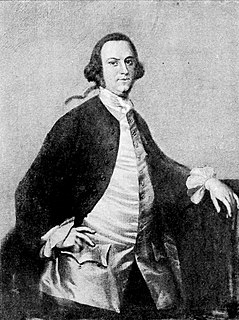 W
WDaniel Carroll was an American politician and plantation owner from Maryland, considered one of the Founding Fathers of the United States. He supported the American Revolution, served in the Confederation Congress, was a delegate to the Philadelphia Convention of 1787 which wrote the Constitution, and was a U.S. Representative in the First Congress. Daniel Carroll was one of five men to sign both the Articles of Confederation and the Constitution. He was one of the very few Roman Catholics among the Founders.
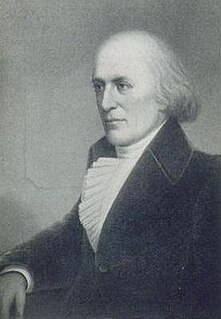 W
WFrancis Dana was an American lawyer, jurist, and statesman from Massachusetts. He served as a delegate to the Continental Congress in 1777–1778 and 1784. He signed the Articles of Confederation. His wife Elizabeth was a daughter of Ann Remington and William Ellery, a signer of the Declaration of Independence. He was also the father-in-law of Washington Allston, a noted painter and poet.
 W
WJohn Dickinson, a Founding Father of the United States, was a solicitor and politician from Philadelphia, Pennsylvania, and Wilmington, Delaware, known as the "Penman of the Revolution" for his twelve Letters from a Farmer in Pennsylvania, published individually in 1767 and 1768. As a member of the First Continental Congress, where he was a signee to the Continental Association, Dickinson drafted most of the 1774 Petition to the King, and then, as a member of the Second Continental Congress, wrote the 1775 Olive Branch Petition. When these two attempts to negotiate with King George III of Great Britain failed, Dickinson reworked Thomas Jefferson's language and wrote the final draft of the 1775 Declaration of the Causes and Necessity of Taking Up Arms. When Congress then decided to seek independence from Great Britain, Dickinson served on the committee that wrote the Model Treaty, and then wrote the first draft of the 1776–1777 Articles of Confederation and Perpetual Union.
 W
WOther notable men have similar names, see: William Drayton (disambiguation).
 W
WJames Duane was an American attorney, jurist, and American Revolutionary leader from New York. He served as a delegate to the Second Continental Congress and the Congress of the Confederation, a New York state senator, the 44th Mayor of New York City, the 1st post-colonial Mayor of New York City and a United States District Judge of the United States District Court for the District of New York. Duane was a signatory of the Continental Association and the Articles of Confederation.
 W
WWilliam Duer was a British-born American lawyer, developer, and speculator from New York City. A Federalist, Duer wrote in support of ratifying the United States Constitution as "Philo-Publius." He had earlier served in the Continental Congress and the convention that framed the New York Constitution. In 1778, he signed the United States Articles of Confederation.
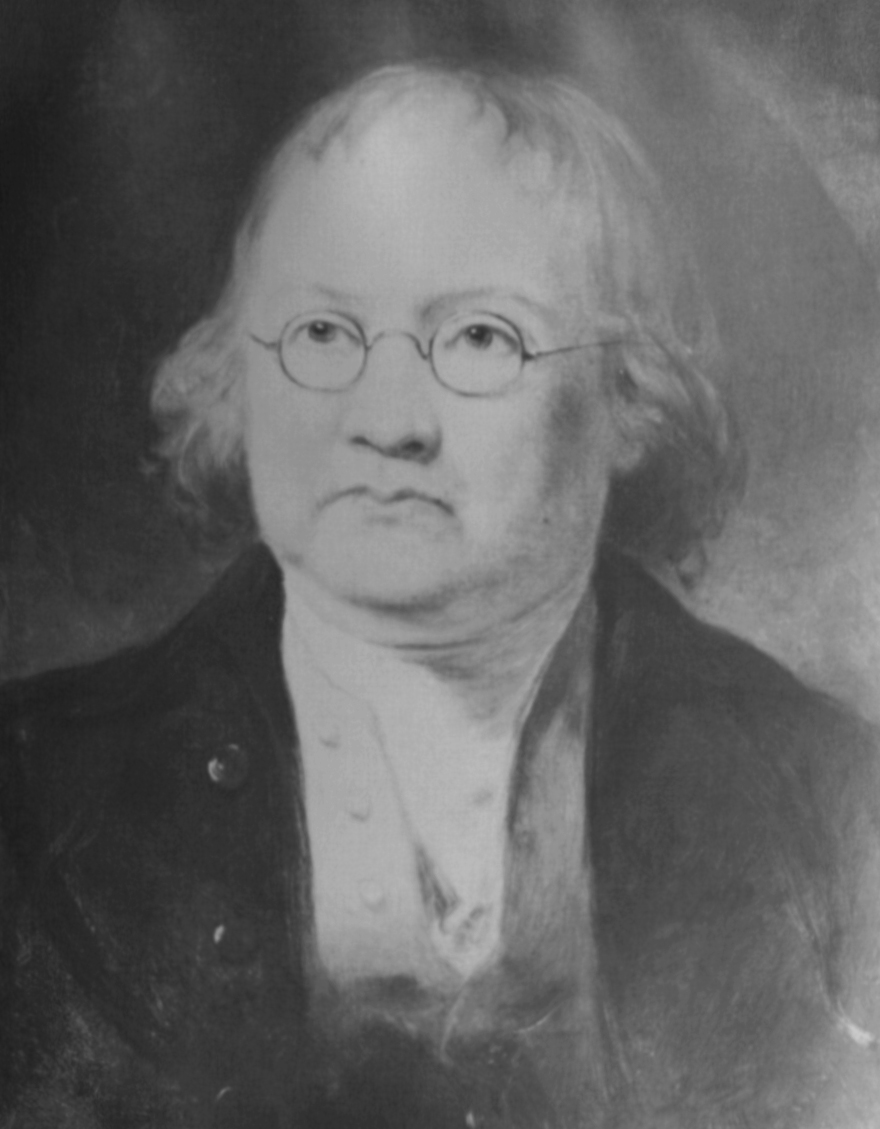 W
WWilliam Ellery was a signer of the United States Declaration of Independence as a representative of Rhode Island. In 1764, the Baptists consulted with Ellery and Congregationalist Reverend Ezra Stiles on writing a charter for the college that became Brown University. Ellery and Stiles attempted to give control of the college to the Congregationalists, but the Baptists withdrew the petition until it was rewritten to assure Baptist control. Neither Ellery nor Stiles accepted appointment to the reserved Congregationalist seats on the board of trustees.
 W
WElbridge Thomas Gerry was an American politician and diplomat. As a Democratic-Republican he served as the fifth vice president of the United States under President James Madison from March 1813 until his death in November 1814. The political practice of gerrymandering is named after him.
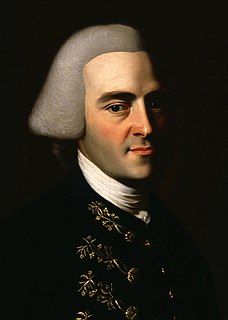 W
WJohn Hancock was an American merchant, statesman, and prominent Patriot of the American Revolution. He served as president of the Second Continental Congress and was the first and third Governor of the Commonwealth of Massachusetts. He is remembered for his large and stylish signature on the United States Declaration of Independence, so much so that the term "John Hancock" has become a synonym in the United States for one's signature.
 W
WJohn Hanson was a merchant and public official from Maryland during the era of the American Revolution. In 1779, Hanson was elected as a delegate to the Continental Congress after serving in a variety of roles for the Patriot cause in Maryland. He signed the Articles of Confederation in 1781 after Maryland finally joined the other states in ratifying them. In November 1781, he was elected as first President of the Confederation Congress, following ratification of the articles. For this reason, some of Hanson's biographers have argued that he was actually the first holder of the office of President of the United States.
 W
WCornelius Harnett was an American merchant, farmer, and statesman from Wilmington, North Carolina. He was a leading American Revolutionary statesman in the Cape Fear region, and a delegate for North Carolina in the Continental Congress from 1777 to 1779. Cornelius Harnett is the namesake of Harnett County, North Carolina.
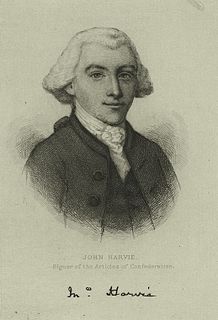 W
WJohn Harvie was an American lawyer and builder from Virginia. He was a delegate to the Second Continental Congress in 1777 and 1778, where he signed the Articles of Confederation.
 W
WThomas Heyward Jr. was a signer of the United States Declaration of Independence and of the Articles of Confederation as a delegate of South Carolina.
 W
WSamuel Holten was an American physician and statesman from Danvers, Massachusetts. He represented Massachusetts as a delegate to the Continental Congress and a member of the United States House of Representatives.
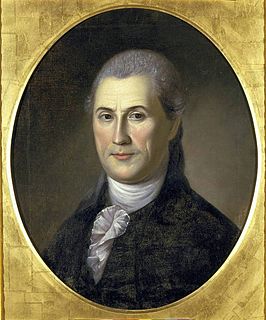 W
WSamuel Huntington was a jurist, statesman, and Patriot in the American Revolution from Connecticut. As a delegate to the Continental Congress, he signed the Declaration of Independence and the Articles of Confederation. He also served as President of the Continental Congress from 1779 to 1781, President of the United States in Congress Assembled in 1781, chief justice of the Connecticut Supreme Court from 1784 to 1785, and the 18th Governor of Connecticut from 1786 until his death.
 W
WRichard Hutson was an American lawyer, judge, and politician from Charleston, South Carolina. He represented South Carolina as a delegate to the Continental Congress, where he signed the Articles of Confederation. After the British captured Charleston in 1780, he was held as a prisoner at St. Augustine, Florida for a time. After he returned home, he served as the eighth Lieutenant Governor of South Carolina under Governor John Mathews in 1782 and 1783.
 W
WHenry Laurens was an American merchant, slave trader, and rice planter from South Carolina who became a political leader during the Revolutionary War. A delegate to the Second Continental Congress, Laurens succeeded John Hancock as President of the Congress. He was a signatory to the Articles of Confederation and President of the Continental Congress when the Articles were passed on November 15, 1777.
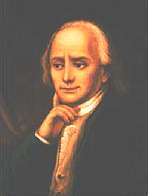 W
WFrancis Lightfoot Lee was a member of the House of Burgesses in the Colony of Virginia. As an active protester regarding issues such as the Stamp Act of 1765, Lee helped move the colony in the direction of independence from Britain. Lee was a delegate to the Virginia Conventions and the Continental Congress. He was a signer of the Articles of Confederation and the Declaration of Independence as a representative of Virginia.
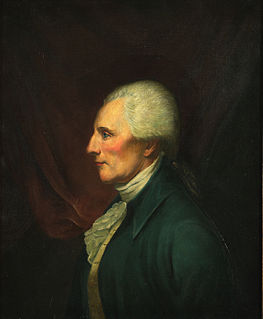 W
WRichard Henry Lee was an American statesman and Founding Father from Virginia, best known for the June 1776 Lee Resolution, the motion in the Second Continental Congress calling for the colonies' independence from Great Britain leading to the United States Declaration of Independence, which he signed. He also served a one-year term as the President of the Continental Congress, was a signatory to the Articles of Confederation, and was a United States Senator from Virginia from 1789 to 1792, serving during part of that time as the second President pro tempore of the upper house.
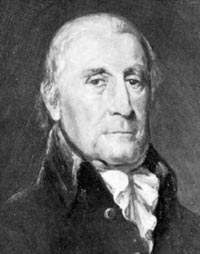 W
WFrancis Lewis was a Welsh merchant and signer of the United States Declaration of Independence as a representative of New York.
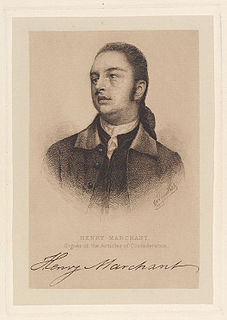 W
WHenry Marchant was an Attorney General of Rhode Island, a delegate to the Second Continental Congress from Rhode Island, a signer of the Articles of Confederation and the first United States District Judge of the United States District Court for the District of Rhode Island.
 W
WJohn Mathews was an American lawyer from Charleston, South Carolina. He was a delegate to the Continental Congress from 1778 to 1781 where he endorsed the Articles of Confederation on behalf of South Carolina. On his return, he was elected the 33rd Governor of South Carolina, serving a single term in 1782 and 1783.
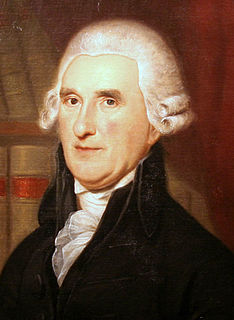 W
WThomas McKean was an American lawyer and politician from New Castle, in New Castle County, Delaware and Philadelphia. During the American Revolution he was a delegate to the Continental Congress where he signed the United States Declaration of Independence and the Articles of Confederation. McKean served as a President of Congress. He was at various times a member of the Federalist and Democratic-Republican parties. McKean served as President of Delaware, Chief Justice of Pennsylvania, and Governor of Pennsylvania. He is also known for holding copious public positions.
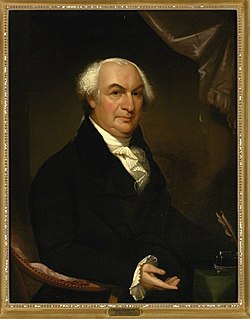 W
WGouverneur Morris was an American statesman, a Founding Father of the United States, and a signatory to the Articles of Confederation and the United States Constitution. He wrote the Preamble to the United States Constitution and has been called the "Penman of the Constitution." In an era when most Americans thought of themselves as citizens of their respective states, Morris advanced the idea of being a citizen of a single union of states. He was also one of the most outspoken opponents of slavery among all of those who were present at the Constitutional Convention. He represented New York in the United States Senate from 1800 to 1803.
 W
WRobert Morris, Jr. was an English-born merchant and a Founding Father of the United States. He served as a member of the Pennsylvania legislature, the Second Continental Congress, and the United States Senate, and he was a signer of the Declaration of Independence, the Articles of Confederation, and the United States Constitution. From 1781 to 1784, he served as the Superintendent of Finance of the United States, becoming known as the "Financier of the Revolution". Along with Alexander Hamilton and Albert Gallatin, he is widely regarded as one of the founders of the financial system of the United States.
 W
WJohn Penn was a signer of both the United States Declaration of Independence and the Articles of Confederation as a delegate of North Carolina.
 W
WJoseph Reed was a lawyer, military officer and statesman of the American Revolutionary Era who lived the majority of his life in Pennsylvania. He served as a delegate to the Continental Congress and, while in Congress, signed the Articles of Confederation. He also served as President of Pennsylvania's Supreme Executive Council, a position analogous to the modern office of Governor.
 W
WRoger Sherman was an early American statesman and lawyer, as well as a Founding Father of the United States. He is the only person to have signed all four great state papers of the United States: the Continental Association, the Declaration of Independence, the Articles of Confederation, and the Constitution.
 W
WJonathan Bayard Smith was an American merchant from Philadelphia, Pennsylvania. He served as a delegate for Pennsylvania to the Continental Congress in 1777 and 1778. Smith was a signatory to the Articles of Confederation.
 W
WJohn Witherspoon was a Scottish American Presbyterian minister and a Founding Father of the United States. Witherspoon embraced the concepts of Scottish common sense realism, and while president of the College of New Jersey, became an influential figure in the development of the United States' national character. Politically active, Witherspoon was a delegate from New Jersey to the Second Continental Congress and a signatory to the July 4, 1776, Declaration of Independence. He was the only active clergyman and the only college president to sign the Declaration. Later, he signed the Articles of Confederation and supported ratification of the Constitution. In 1789 he was convening moderator of the First General Assembly of the Presbyterian Church in the United States of America.
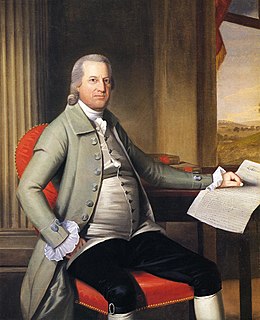 W
WOliver Wolcott Sr. was an American politician. He was a signer of the United States Declaration of Independence and also of the Articles of Confederation as a representative of Connecticut and the nineteenth Governor of Connecticut. He was a major general for the Connecticut Militia in the Revolutionary War serving under George Washington.